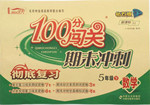题目内容
Lang Lang is a famous young pianist from Shenyang. He went to a ___16___ school in Beijing when he was just eight years old. “You need fortune, but if you don’t work hard, no fortune will come,” his father said.
What made him sad was ___17___ his piano teacher in Beijing didn’t like him. “You don’t have a ___18___ for playing the piano. You will never be a pianist.” As a nine-year-old boy, Lang Lang was badly ___19___. He didn’t want to be a ___20___ any more. For the next two weeks he didn’t touch the piano. ___21___, his father didn’t say anything about it. He waited.
Luckily, the day came when his teacher asked him to ___22___ some holiday songs. He didn’t want to, but as he placed his fingers on the piano keys, he ___23___ that he could show others that he had talent. That day he told his father that he wanted to study with a new ___24___. His father had been waiting to the very words for ____25_____ . From that day on, everything turned around.
He started win competitions(比赛). In the 1994 International Young Pianists Competition, when it was ___26___ that Lang Lang had won the first prize, he was too ___27___ to hold back his tears. From 1997 to 1999, Lang Lang spent two years practicing hard in Philadelphia, U.S.. In 1999 he gave a ___28___ performance at Chicago’s Ravinia Festival. He was invited to play at gigs(特邀演出)in Lincoln Center ___29___. Lang Lang finally managed to win ___30___ with his self-confidence and hard work..
16. A. football B. piano C. middle D. actors
17. A. whether B. why C. when D. that
18. A. story B. picture C. idea D. talent
19. A. hurt B. puzzled C. encouraged D. terrified
20. A. singer B. pianist C. dancer D. athlete
21. A. So B. Because C. However D. If
22. A. play B. sing C. write D. make
23. A. apologized B. told a lie C. chatted D. realized
24. A. teacher B. classmate C. minister D. waiter
25. A. two years B. two weeks C. two months D. two hours
26. A. told B. shouted C. announced D. smiled
27. A. excited B. sad C. shocked D. satisfied
28. A. successful B. cheerful C. respectful D. meaningful
29. A. eastwards B. towards C. upwards D. afterwards
30. A. food B. fortune C. knowledge D. money
16-20 BDDAB 21-25 CADAB 26-30 CAADB
解析:
略

 100分闯关期末冲刺系列答案
100分闯关期末冲刺系列答案Liu Xiang, athlete, born in 1983
Liu Xiang made his name by winning the 110-meter hurdles gold medal at the 2004 Summer Olympics in Athens. This was the first time an athlete of non-African descent (血统) had gone under 13 seconds for the event. In the same year, Liu set a new 110-meter hurdling world record at the Super Grand Prix in Lausanne, with a time of 12.88 seconds.
Lang Lang, pianist, born in 1982
Lang Lang began piano lessons at age three. His father quit his job to accompany his boy to Beijing. At 11, Lang Lang was awarded first prize for his outstanding performance at the Fourth International Young Pianists Competition in Germany. In 1995, at 13, he won first place at the Tchaikovsky International Young Musicians’ Competition in Japan. At 17, Lang Lang made his breakthrough in the West and has performed with many of the world’s major orchestras since then.
Li Yuchun, singer, born in 1984
Born into a middle-class family, Li was not encouraged by her parents to pursue a career in entertainment. The turning point came when she entered the Super Girl contest in 2005. This competition drew the largest audiences in Chinese television history. She rose above 120,000 applicants with her tomboy style and Latin-flavored performance. Her win came as a surprise to many people because she didn’t fit the stereotype of female singers. She has millions of fans of all ages all over the country. Her haircut and manners have been copied by tens of thousands of girls. Her first album sold more than 430,000 copies in the first month.
Ding Junhui, snooker player, born in 1987
Ding quit school at 13, after his father insisted he concentrate on snooker. His parents then sold their house to help Ding kick-start his career. In March 2005, he celebrated his 18th birthday by reaching the final of the China Open in Beijing, along the way beating world top-16 ranked players Peter Ebdon, Marco Fu and Ken Doherty. In the final, he defeated the then world No 3, Stephen Hendry, ranking first in the tournament. After shooting to fame, questions were raised over the father’s decision for Ding to quit school.
【小题1】Who is the passage intended for?
| A.People only interested in China Daily. | B.Children born after the 1980s. |
| C.Students and the young crazy fans. | D.Readers of all ages. |
| A.Liu Xiang was the first to prove the Asians can equal the African descent in the hurdles. |
| B.Li Yunchun’s talent made her the best-known singer in China. |
| C.Ding Junhui was forced to drop out of school because of his low grades. |
| D.Lang Lang was the most popular with the students in China. |
| A.Li Yuchun. | B.Liu Xiang. | C.Ding Junhui. | D.Lang Lang. |







